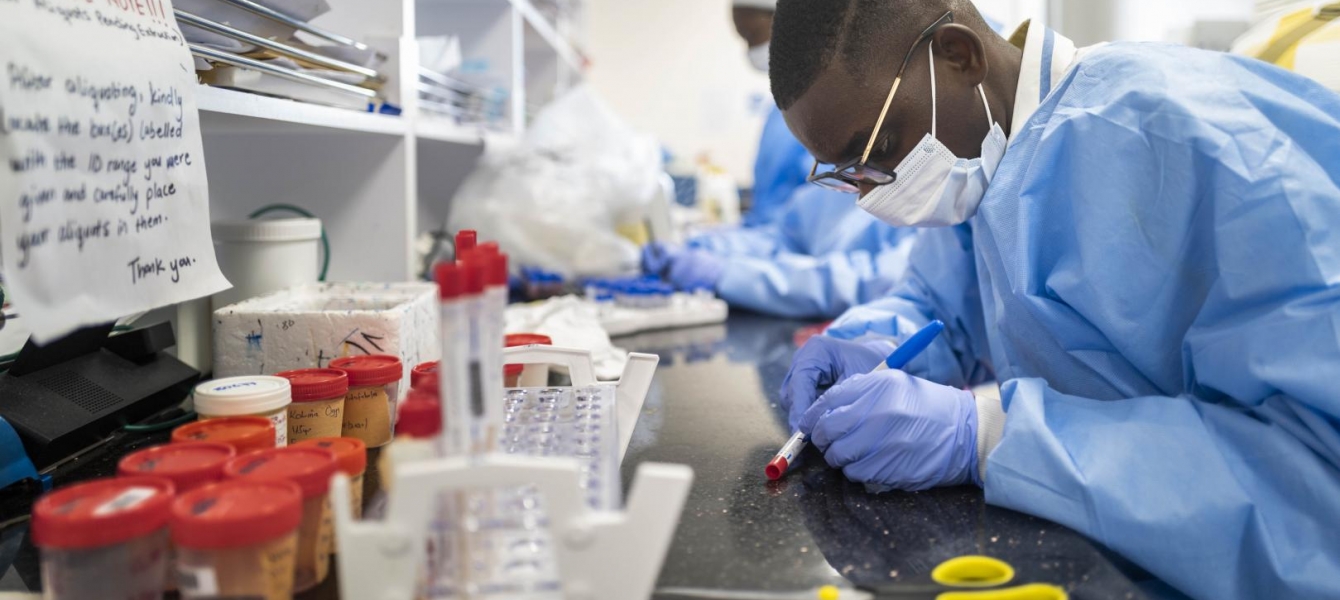Just 24 hours after the United Kingdom became the first western country to approve a COVID-19 vaccine for its citizenry, experts in a webinar titled “Access to COVID-19 Vaccines for Africa” warned of the impending challenges that Africa faces when it will carry out a similar move.
Organized by ADS Group in partnership with Africa Health Business and Mansa Media, the virtual forum explored issues ranging from procurement, financing solutions for the production, distribution, and administration of the COVID-19 vaccine in Africa.
The Africa Centre for Disease Control (CDC) is already targeting vaccinating 780 million people in the continent by 2022. Dr. Nicaise Ndembi, Senior Science Advisor at the Africa CDC, said that, “Our aim is to vaccinate at least 60% of the African population within two years, that’s about 780 million people.”
But that can only be possible with financing. The continent requires about $4 billion to carry out such an endeavor, and the difficulty and slow progress of previous mass immunization campaigns of diseases such as polio illustrate the need for unity and private public partnership.
“The private sector is keen on supporting the logistics and financing, digitization and regulation efforts of the COVID-19 vaccine access within the continent,” said Dr. Margaret Agama-Anyetei, Head of the Health, Nutrition and Population Division of the African Union Department for Social Affairs.
Paulo Gomes, Co-Chair of AfroChampions added, “Africa has the room for renovation to increase and mobilize resources earlier on in the front line in order to acquire the vaccine for the future.”
There is relief in many corners that the end of the pandemic is nigh with three vaccine candidates releasing promising data of their final stage tests. American firm Pfizer and its German partner BioNTech vaccine candidate had a 95% efficiency while Moderna, another U.S. firm, said its vaccine had a 90% efficiency. AstraZeneca’s vaccine had 85% efficacy.
However, all the vaccines require storage in at least -85 degrees Celsius conditions and that could make it difficult for disbursement into rural areas in Africa.
According to analyses by the World Health Organization (WHO), which are based on country self-reports, Africa has an average score of 33% readiness for a Covid-19 vaccine roll-out, which is well below the desired benchmark of 80%.
Sodo Bah, Head of Partnerships and Strategy at the webinar’s organizers, ADS Group, said, “Our focus is to develop a strong vaccine distribution mechanism and technology services.”
All three companies have said that they are in the process of making their vaccines easier to store, and experts believe that they could be stored for five days in normal refrigerator conditions of around 2 degrees Celsius.
Prof. Salim Karim said, “Preliminary data shows more good news is expected on the COVID-19 vaccines, that are efficient, easier to store and cheaper to access,” while adding that a lot of information is yet to be known on the vaccines’ long-term safety, duration of protection after immunization and if the vaccine protects against both mild and severe disease.
Africa has fared better in the pandemic than most experts predicted. With about 14% of the world’s population, the continent of 1.4 billion people has recorded just 4% of global coronavirus cases. That has been attributed to the partnerships between all 54 countries that has fostered resilience.
Dr. Amit Thakker, Chairman of Africa Health Business, spoke about the need of coming together to make the COVID-19 vaccination campaign — when rolled out — a success. “This a groundbreaking collaboration to accelerate development and equitable access to COVID-19 tests, treatment and vaccines.”
There is a huge risk that without proper awareness campaigns on the importance of mass immunization, many Africans already worn out by the economic suffering and brutal implementation of curfews by state security agencies may ignore the vaccine.
“My final concern for equitable access to the vaccine in Africa is… To raise awareness of the population on the interest of being vaccinated despite miscommunication regarding the vaccine.” Baye Ndiaye Executive Director of Equally warned.
While the vaccine presents a conundrum in its roll out, should the immunization be successful the continent’s battered economy could begin to rise.
Before March, Sub-Saharan African economies were among the fastest growing in the world, but the World Bank expects that to change this year.
All participants in the webinar agreed that the vaccine could save lives and restart socioeconomic life in the continent.

